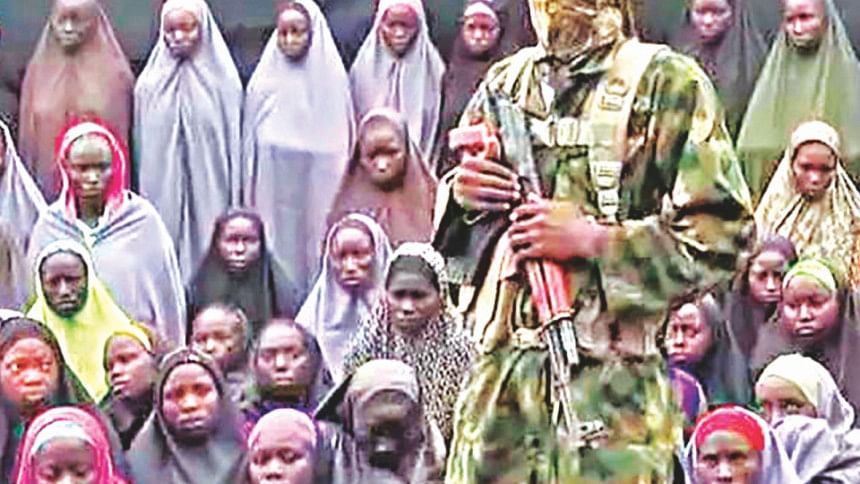Boko Haram shows missing Chibok girls

Boko Haram yesterday released a new video purportedly showing some of the Nigerian schoolgirls kidnapped by the jihadist group from Chibok more than two years ago.
The film was issued just days after embattled Boko Haram head Abubakar Shekau denied claims that he had been replaced as the leader of the Nigeria-based group.
The kidnapping of 276 schoolgirls from Chibok in April 2014 provoked global outrage and brought unprecedented attention to Boko Haram and its bloody quest to create a fundamentalist state in northeastern Nigeria.
A man whose face was covered by a turban in the video called on the Nigerian government to release Boko Haram prisoners in exchange for the girls.
"They should know that their children are still in our hands," he said in the film posted on YouTube.
While President Muhammadu Buhari has said the group is "technically defeated", his government has struggled to find the girls, an enduring political embarrassment that highlights Boko Haram's continued presence in the region.
The video was attributed to the original Boko Haram name, not the new Islamic State West Africa Province (ISWAP), suggesting it was released by Shekau's faction, although it is not known when it was filmed.
"There are a number of the girls, about 40 of them, that have been married," said the man in the 11-minute video, which shows girls with veils sitting on the ground and standing in the background.
"Some of them have died as a result of aerial bombardment."
A girl speaking in the Chibok dialect chokes back tears as she describes an aerial attack by Nigerian armed forces.
In the background, several girls look visibly distressed and dab their eyes as she recounts the raids. One is holding a small baby.
"They should immediately release our brethren in their custody," the man said, threatening that if the prisoners are not released that the Nigerian government will never be able to rescue the girls.
'SENSE OF DESPERATION'
"This focuses on using the girls as a bargaining chip," Ryan Cummings, director at intelligence firm Signal Risk, told AFP.

 For all latest news, follow The Daily Star's Google News channel.
For all latest news, follow The Daily Star's Google News channel. 



Comments